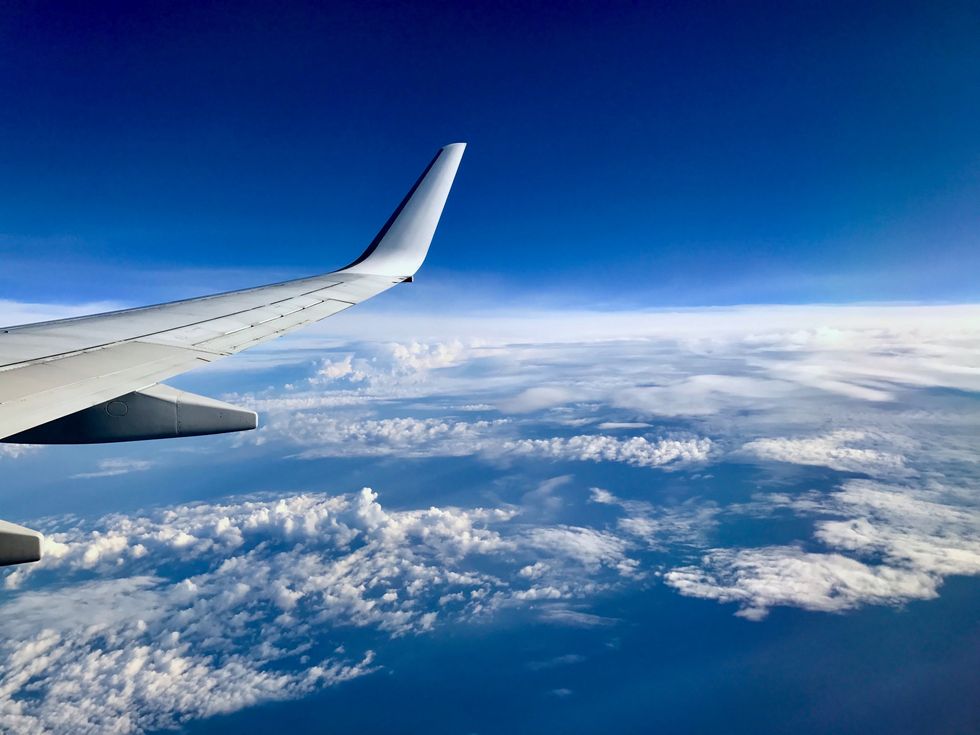Let's be honest, jetting off to an exotic and dreamlike destination can be very appealing, but the hellish venture overseas is surely not pleasant for even the most fabulous jet setters flying first class. However, preparation is key when facing long distances of air travel. Relaxation and keeping one's body clock in check remains a mystery for many, so here are a few secrets on how to land looking and feeling refreshed!
Hydrate, Hydrate, Hydrate
Although you might have to use the gross airplane restrooms more often, drinking more fluids than you are used to is crucial. Since the air is much drier on an airplane, your skin will dehydrate much quicker. Increasing your water intake preflight will give you a head start and will leave your skin glowing and hydrated.
According to, "healthline" in order to stay hydrated an adult is recommended to drink eight ounces of water everyday, however drinking warm water during your flight also helps balance out the frigid air. Drinking warm water not only keeps you hydrated but improves circulation, as well. Healthy blood flow throughout a long flight will help with relaxation and prepare you for a tranquil sleep.
In addition, I recommend adding an electrolyte mix to your water. One packet of "HYDRANT" is equivalent to half a gallon of water. Lastly, even spritzing your face with some rose water during your extensive flight will revitalize and moisturize your skin, as well as reduce redness.
Watch What You Eat-Preflight
The unhealthy, microwaved airplane meals are not the best, to put it nicely. Detoxifying your body and stabilizing your metabolism aid in fighting off the undesirable jet lag, so opt out of eating the airplane meals to avoid hindering your body. Tip: avoid heavy and spicy foods before your long-haul flight!
Although delicious meals such as Chipotle are great during layovers, foods with high fat and sodium will just cause bloating in the end. Try snacks like whole wheat crackers and greek yogurt before takeoff instead because as air pressure increases, gas in your intestine expands.
Not only should you avoid eating unhealthily, but also avoid drinking unhealthily, as well. Prep your body 24 hours before to insure a pleasant and stressless flight. Caffeine can sometimes be your friend when your energy is low, but during long-haul flights it can significantly disrupt the quality of your sleep. In addition, be conscious of your alcohol intake and try to avoid it as best as you can.
Adjust Your Body Clock
Adjusting to a new time zone is probably the most difficult when trying to fight off jet lag. A critical tip to remember is that light plays a big role in affecting your body's circadian rhythm. When traveling through different time zones, there is a considerable shift in how much light your body is exposed to, as well as an imbalance between your body's sense of day and night.
In order to beat this sudden shift, you can first start by planning ahead. Alter your sleep and wake up times preflight. Begin getting your body used to the new time zone by waking up and going to bed earlier or vice versa depending on where you are traveling to.
Also, try to stay awake until your normal bedtime based on the local time. This may be difficult, but it is crucial in order to adjust quickly upon arrival. To help fight off your sleepiness after arriving in the new time zone, try to get a few minutes of direct sunlight after you wake up. And that wild bon-voyage party last night won't make you feel so hot for the first part of your trip.



 Photo by
Photo by  Photo by
Photo by  Photo by
Photo by 



















